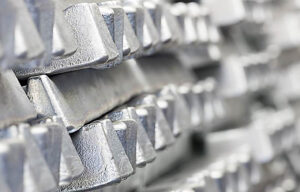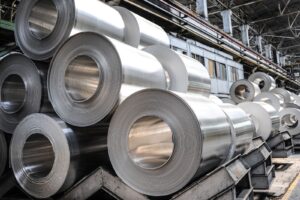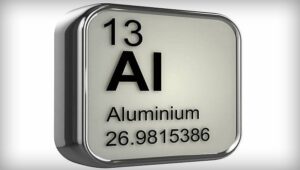
In January-May 2025, Ukraine imported aluminum and aluminum products worth $206.628 million, up 20.2% compared to the same period in 2024. In May, imports of aluminum products amounted to $40.340 million.
Over the same period, aluminum exports increased by 31.9% to $57.761 million. In May, the company exported products worth $12.698 million.
In 2024, aluminum imports amounted to $446.006 million (+21.7% compared to 2023), and exports amounted to $124.408 million (+27.4%). In 2023, Ukraine imported aluminum products worth $366.463 million and exported $97.616 million.

In the first four months of 2025, Ukraine imported aluminum and aluminum products worth $166.26 million (+21.6%), while exports amounted to $45.06 million (+17.9%). In April, imports reached $49.47 million, while exports amounted to $13.36 million.
Aluminum is widely used as a structural material. The main advantages of aluminum are its lightness, malleability, corrosion resistance, high thermal conductivity, and non-toxicity of its compounds. These properties have made aluminum extremely popular in the manufacture of kitchen utensils, aluminum foil in the food industry, and for packaging. The first three properties have made aluminum the main raw material in the aviation and aerospace industries (recently, it has been replaced by composite materials, primarily carbon fiber). After construction and the production of packaging—aluminum cans and foil—the largest consumer of aluminum is the energy sector.

In January-March 2025, imports of aluminum and aluminum products increased by 18.5% to $116.75 million, including $42.16 million in March.
Exports during this period increased by 35.5% to $31.7 million ($11.74 million in March). At the end of 2024, imports amounted to $446 million (+21.7%), while exports amounted to $124.4 million (+27.4%).
Aluminum is widely used as a structural material. The main advantages of aluminum are its lightness, stamping resistance, corrosion resistance, high thermal conductivity, and non-toxicity of its compounds. In particular, these properties have made aluminum extremely popular in the production of cookware, aluminum foil in the food industry, and packaging. The first three properties have made aluminum the main raw material in the aviation and aerospace industries (recently it has been replaced by composite materials, primarily carbon fiber). After the construction and production of packaging, such as aluminum cans and foil, the energy sector is the largest consumer of the metal.

In January-February 2025, Ukraine increased imports of aluminum and aluminum products by 23.4% to $74.56 million. In February alone, aluminum imports amounted to $37.9 million. At the same time, exports of aluminum and aluminum products increased by 27.8% to $19.9 million.
Aluminum is widely used as a structural material. The main advantages of aluminum are its lightness, stamping resistance, corrosion resistance, high thermal conductivity, and non-toxicity of its compounds. In particular, these properties have made aluminum extremely popular in the production of cookware, aluminum foil in the food industry, and packaging. The first three properties have made aluminum the main raw material in the aviation and aerospace industries (recently it has been replaced by composite materials, primarily carbon fiber). After the construction and production of packaging, such as aluminum cans and foil, the energy sector is the largest consumer of the metal.

In January 2025, imports of aluminum and aluminum products increased by 9.4% year-on-year to $36.658 million (in December – $36.943 million). In January, aluminum exports increased by 17.9% to $9.431 million, while in December this figure was $8.426 million.
Aluminum is widely used as a structural material. The main advantages of aluminum are its lightness, stampability, corrosion resistance, high thermal conductivity, and non-toxicity of its compounds. In particular, these properties have made aluminum extremely popular in the production of cookware, aluminum foil in the food industry, and packaging. The first three properties have made aluminum the main raw material in the aviation and aerospace industries (recently it has been replaced by composite materials, primarily carbon fiber). After the construction and production of packaging, such as aluminum cans and foil, the energy sector is the largest consumer of the metal.

In 2024, imports of aluminum and aluminum products increased by 21.7% to $446.006 million (in December – $36.943 million). Exports of aluminum increased by 27.4% to $124.408 million, compared to $8.426 million in December.
Aluminum is widely used as a structural material. The main advantages of aluminum are its lightness, stamping resistance, corrosion resistance, high thermal conductivity, and non-toxicity of its compounds. In particular, these properties have made aluminum extremely popular in the production of cookware, aluminum foil in the food industry, and packaging. The first three properties have made aluminum the main raw material in the aviation and aerospace industries (recently it has been replaced by composite materials, primarily carbon fiber). After the construction and production of packaging, such as aluminum cans and foil, the energy sector is the largest consumer of the metal.